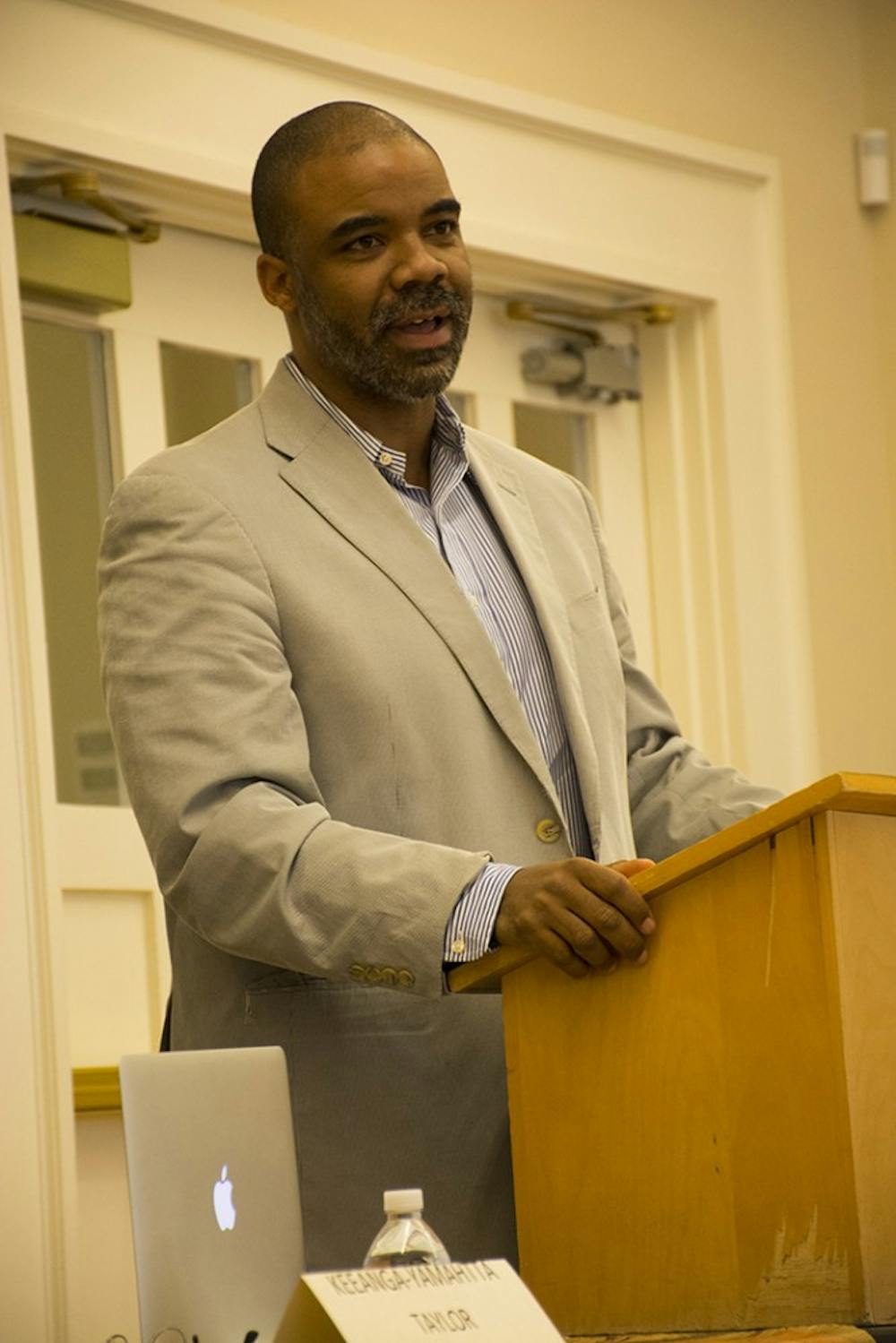Police brutality, the high costs of a college education, inequitable access to housing and their disproportionate effects on black America were among the issues discussed by panelists on Thursday night in an event entitled “The Race Tax: Economic Predation in Black America.”
The event was hosted by The Carter G. Woodson Institute for African-American and African Studies.
History Prof. Andrew Kahrl, who organized the panel, said the purpose of the event was to highlight a racial issue too rarely talked about.
“Until we start talking seriously about the economic exploitation, we’re never going to fully understand the rage that erupted on the streets of Ferguson, Baltimore and elsewhere,” Kahrl said.
The panel featured Nathan Connolly, currently a visiting professor at New York University and formerly a history professor at Johns Hopkins University; Devin Fergus, an associate professor of African-American and African studies at Ohio State University; Mildred W. Robinson, a professor at the University Law School; and Keeanga-Yamahtta Taylor, an assistant professor of African-American studies at Princeton University.
Connolly primarily spoke about African-American homeownership in the United States. He pointed to a social phenomenon in which black people are encouraged to buy homes but forced to rent them due to discriminatory policies in pricing. He said black people typically pay 25 to 30 percent higher prices than white people in order to move into a predominantly white neighborhood.
“Living in Jim Crow America is living is Disney World without the rides,” Connolly said when comparing black communities to captive audiences forced to pay higher prices for basic goods.
He also said while many politicians cite urban poverty as an issue, contributing to a “ghetto” conception of black neighborhoods, most poverty in Black America is suburban. He cited presidential candidate Sen. Bernie Sanders (D-VT) as an example.
“He is running a 1960s campaign in the 21st century,” Connolly said of Sanders.
Fergus said inequitable access to college education is one source of inequitable access to housing.
“Since World War II, a college degree has been considered the great social leveler,” Fergus said.
This is no longer the case, Fergus said.
Fergus said that while approximately 66 percent of white students are likely to borrow money to pay for their college education, 81 percent of black students are. These black students are also more likely to delay home ownership.
“Blacks have a higher debt to income ratio,” Fergus said. He said this ultimately leads to black people having lower credit scores and paying higher interest rates, an effect which he described as cascading, disparate and intergenerational.
The issue of economic hardship gives rise to excessive policing, Robinson said, using the racially charged events in Ferguson, Missouri, as an example.
“How is it that with Ferguson, the police force becomes [a] tax collector rather than protector?” Robinson asked.
She said the predominantly black city’s declining economy during the Great Recession is one answer to this question.
While the local government was used to having property tax as their primary source of revenue, more restrictions on property taxes were imposed when subprime lending became common, Robinson said. Therefore, the city turned to increased fines and citations as a means of funding.
Robinson also said an officer’s citation numbers were what determined how effective they were, which led them to over-police already overwhelmed black communities.
Taylor concluded the panelists’ prepared remarks by commenting on why she believes understanding the impact of the “race tax” is important.
“Our understanding of the economic dimensions of racial discrimination in the United States complicates a simplistic understanding,” Taylor said.
She described discrimination and substandard education and housing in black communities as contributors to conditions which give rise to crime and products of economic disparities.
Thus, black communities are trapped in a cycle which justifies over-policing, Taylor said.
“Increasingly, police are asked to bridge the financial gap experienced in municipal areas,” Taylor said. “This is the latest iteration of the race tax.”







